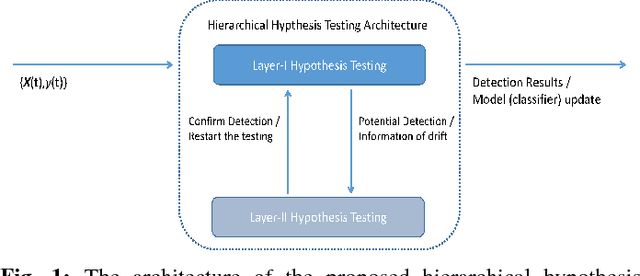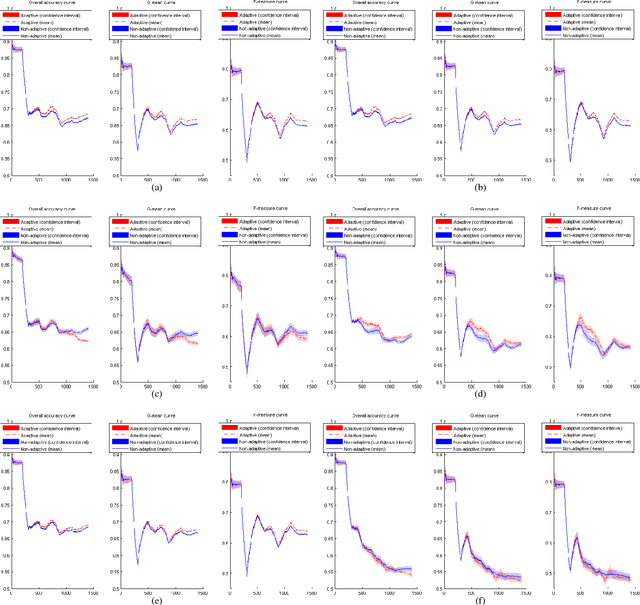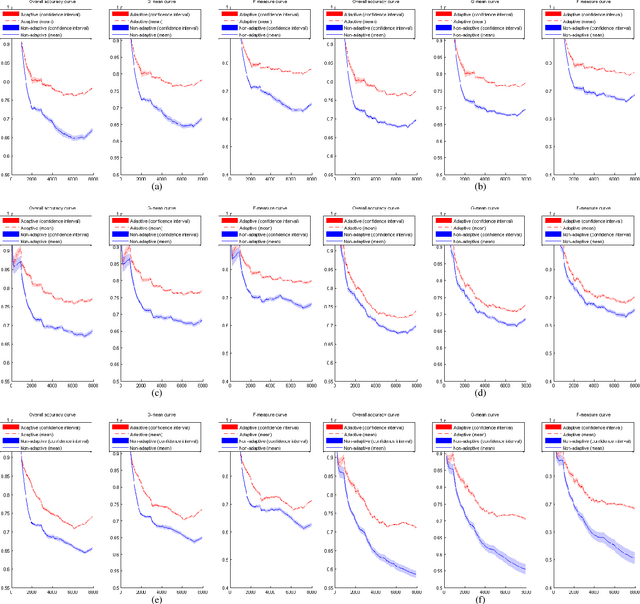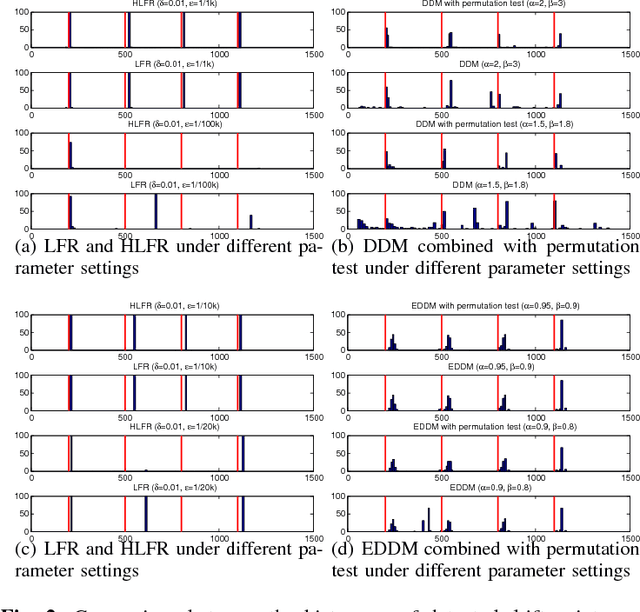Zubin Abraham
Concept Drift Detection and Adaptation with Hierarchical Hypothesis Testing
Sep 17, 2018



Abstract:A fundamental issue for statistical classification models in a streaming environment is that the joint distribution between predictor and response variables changes over time (a phenomenon also known as concept drifts), such that their classification performance deteriorates dramatically. In this paper, we first present a hierarchical hypothesis testing (HHT) framework that can detect and also adapt to various concept drift types (e.g., recurrent or irregular, gradual or abrupt), even in the presence of imbalanced data labels. A novel concept drift detector, namely Hierarchical Linear Four Rates (HLFR), is implemented under the HHT framework thereafter. By substituting a widely-acknowledged retraining scheme with an adaptive training strategy, we further demonstrate that the concept drift adaptation capability of HLFR can be significantly boosted. The theoretical analysis on the Type-I and Type-II errors of HLFR is also performed. Experiments on both simulated and real-world datasets illustrate that our methods outperform state-of-the-art methods in terms of detection precision, detection delay as well as the adaptability across different concept drift types.
Concept Drift Detection for Streaming Data
May 03, 2015



Abstract:Common statistical prediction models often require and assume stationarity in the data. However, in many practical applications, changes in the relationship of the response and predictor variables are regularly observed over time, resulting in the deterioration of the predictive performance of these models. This paper presents Linear Four Rates (LFR), a framework for detecting these concept drifts and subsequently identifying the data points that belong to the new concept (for relearning the model). Unlike conventional concept drift detection approaches, LFR can be applied to both batch and stream data; is not limited by the distribution properties of the response variable (e.g., datasets with imbalanced labels); is independent of the underlying statistical-model; and uses user-specified parameters that are intuitively comprehensible. The performance of LFR is compared to benchmark approaches using both simulated and commonly used public datasets that span the gamut of concept drift types. The results show LFR significantly outperforms benchmark approaches in terms of recall, accuracy and delay in detection of concept drifts across datasets.
 Add to Chrome
Add to Chrome Add to Firefox
Add to Firefox Add to Edge
Add to Edge